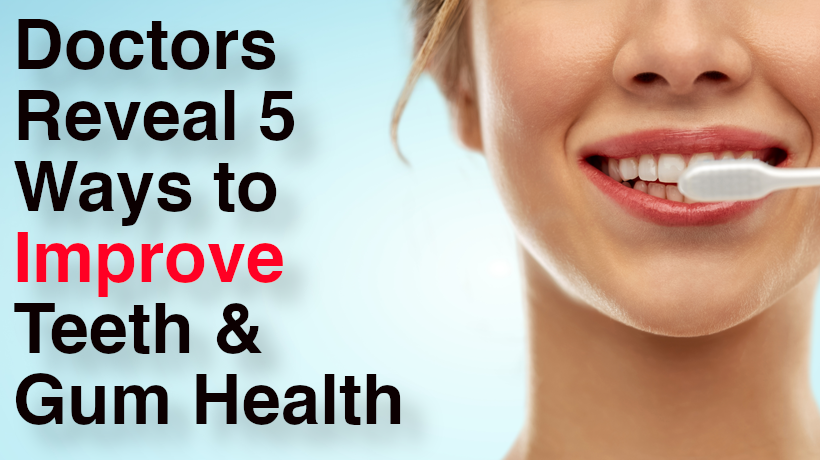Since the pandemic started, I find it even harder to want to go to the dentist. I don’t want to make any trips outside my house if I can avoid it. Below are five easy ways to improve oral health at home.
Use an electric toothbrush
Multiple studies have shown the benefits of the electric toothbrush over old-fashioned toothbrushes. DentalHealth.org states that a healthy brushing routine consists of brushing for two minutes, twice a day with fluoride toothpaste.
Dr. Nammy Patel, DDS explains the benefits of the electric toothbrush. “It hits your teeth with up to 50,000 pulsations per minute so your teeth are super clean,” she says.
Use a Water Flosser
Patel says the water flosser is perfect for hard to reach places and is a much faster way to floss. Although this shouldn’t be a substitute for flossing, it may help to keep your teeth even cleaner for your next doctor visit.
Try oil pulling
Oil pulling “has been shown to pull toxins out of the gums and to reduce plaque and gingivitis,” Patel notes. Patel recommends swishing with 2 tbsp of oil (sesame or coconut) once daily at night before bed.
Oil pulling is a cheaper alternative to mouthwash although mouthwash is always best.
“There’s not a ton of research on oil pulling, but it is a cheaper alternative to mouthwash that some experts say yield similar results,” Patel says.
Rinse with hydrogen peroxide and salt
Rinsing with salt helps to fight off gingivitis. Dr. Patel recommends mixing salt with hydrogen peroxide and water for a deep clean dive for your teeth.
“I highly recommend mixing a tablespoon of peroxide with 8 ounces of water and a teaspoon of salt: swish for 30-60 seconds. This can break down the outer layer of viruses and reduce that population in the mouth area.” This is recommended to be done every night.
Breathe through your nose
Breathing through your mouth dries it out and can “increase gum disease, plaque, and tooth decay. Breathing through the nose activates nitric oxide.
Try to train yourself to breathe through your nose instead of your mouth while you are awake and while you sleep. Patel recommends taping your mouth shut as you sleep (obviously not so tight where you can’t breathe at all). If you notice any breathing issues, take a decongestant.



